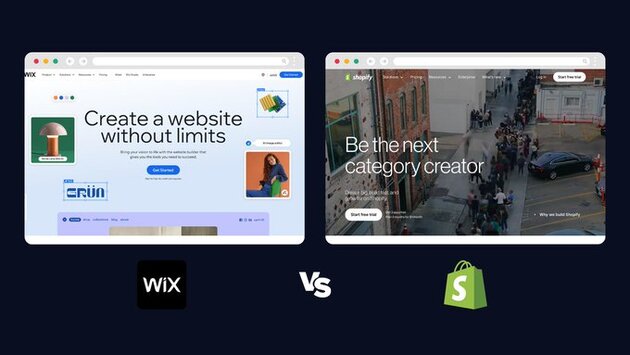
Wix vs Shopify: Which is Better for Your Online Store in 2025?
Starting an online store in 2025 means choosing the right ecommerce platform from the very beginning. Wix vs Shopify is one of the most common comparisons for entrepreneurs, and for good reason—both platforms let you build a professional online store without coding. Wix shines for beginners and small businesses that want simplicity and affordability, while Shopify stands out for larger businesses needing advanced ecommerce tools and scalability. Understanding the strengths and trade-offs of each can help you make the best choice for your business goals.
Wix vs Shopify: Ease of Use and Store Setup
If you’re new to ecommerce, Wix offers a drag-and-drop editor that makes designing your store as simple as arranging elements on a page. With over 2,000 templates and built-in SEO tools, it’s easy to get your store online fast. Shopify, while more powerful, has a steeper learning curve. Its setup process requires more time but rewards you with greater customization, multiple sales channels, and AI-powered personalization tools. Beginners may find Wix quicker to launch, while Shopify suits those ready to invest time in mastering its features.
Wix vs Shopify: Features and Scalability
When it comes to ecommerce power, Shopify leads with over 100 payment options, advanced checkout features, robust shipping tools, and an extensive app marketplace. It’s designed for growth, making it ideal for businesses that expect to scale quickly. Wix provides multi-channel selling, mobile-optimized storefronts, and essential payment integrations but falls short for complex inventory management or high-volume transactions. For small to mid-sized stores, Wix covers the basics, but Shopify remains the better choice for scaling into a global brand.
Wix vs Shopify: Pricing and Value
Pricing is often a deciding factor in the Wix vs Shopify debate. Wix plans start lower, making it appealing for budget-conscious businesses, but advanced features may require upgrades. Shopify’s plans are pricier, and some features rely on paid apps, yet the return on investment can be higher for stores generating significant sales. Choosing between them depends on whether you value upfront affordability or long-term ecommerce growth.
𝗦𝗲𝗺𝗮𝘀𝗼𝗰𝗶𝗮𝗹 𝗶𝘀 𝘄𝗵𝗲𝗿𝗲 𝗿𝗲𝗮𝗹 𝗽𝗲𝗼𝗽𝗹𝗲 𝗰𝗼𝗻𝗻𝗲𝗰𝘁, 𝗴𝗿𝗼𝘄, 𝗮𝗻𝗱 𝗯𝗲𝗹𝗼𝗻𝗴. We’re more than just a social platform — from jobs and blogs to events and daily chats, we bring people and ideas together in one simple, meaningful space.